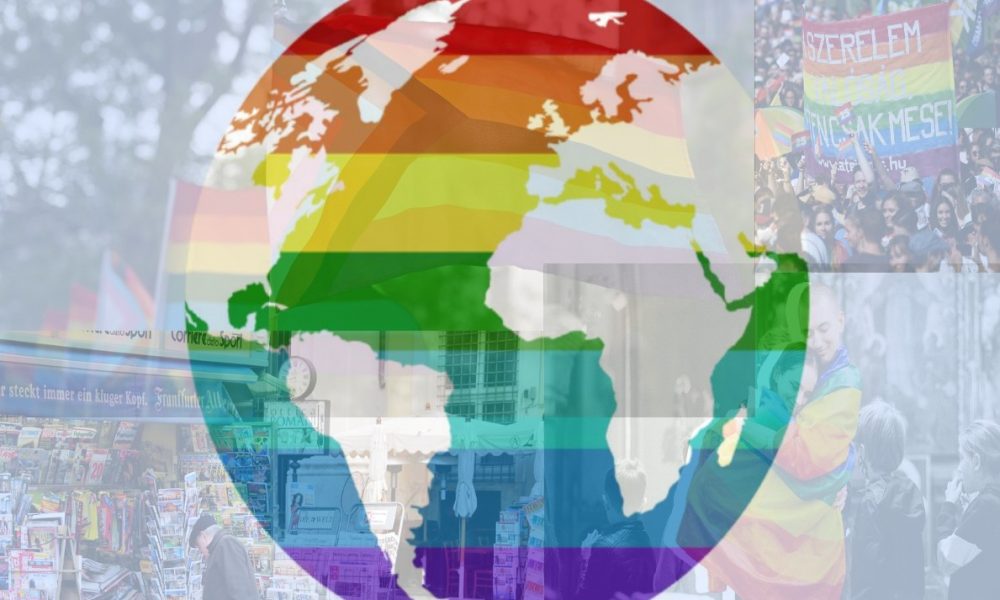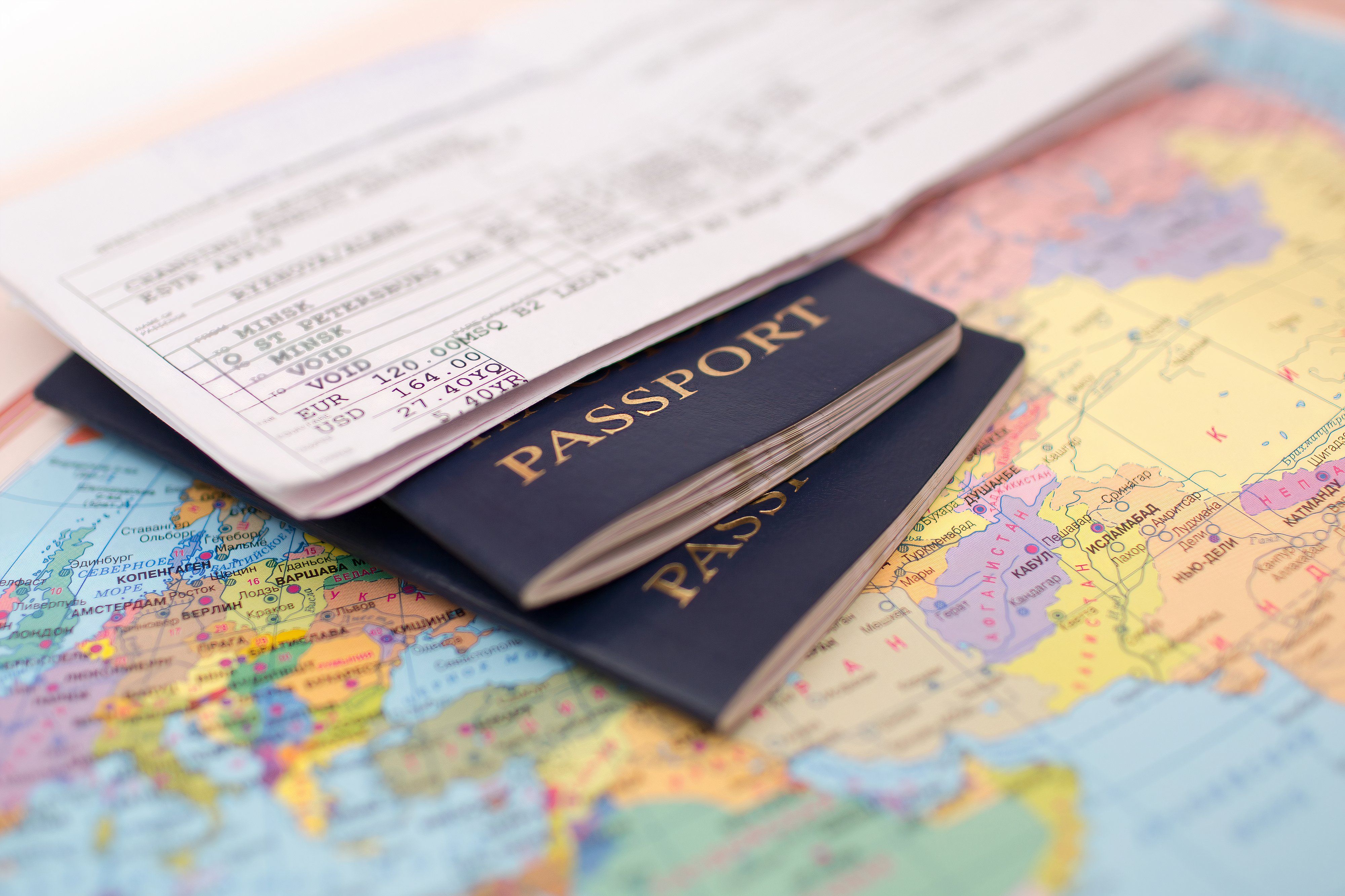World
Out in the World: LGBTQ news from Europe and Asia

AUSTRALIA
CANBERRA, Australia – After a decision not to ask questions about LGBTQ status in the national census sparked widespread backlash, the Australian government has flipflopped and will ask a single question about “sexual preference” on the 2026 survey.
Australia’s governing Labor Party, which has been in power since 2022, had pledged to count LGBTIQ+ people in the national census in its 2023 party manifesto.
But last week, the Australian Bureau of Statistics announced that testing of the voluntary questions it was developing on sexual orientation, gender identity, and intersex status would not go forward, as the government had decided not to include.
That sparked criticism from prominent LGBTQ activists and rights organizations, as well as the country’s sex discrimination commissioner, and a Labor cabinet minister from Victoria state.
“Put simply — all LGBTIQA+ people deserve recognition. Equality means not leaving anyone behind, but if you don’t count us, we don’t count,” says Harriet Shing, Victoria’s minister for equality.
The government took another blow when six of its own MPs openly criticized the decision.
There were even calls to exclude the prime minister from the Sydney Mardi Gras festival over the census and a previous broken promise to close a legal loophole allowing religious schools to discriminate against LGBT teachers and students.
“[Prime Minister Anthony] Albanese says he wants to promote social cohesion and prevent division, but by pushing LGBTIQA+ Australians back into the statistical closet he is doing exactly the opposite,” says Rodney Croome, a spokesperson for Just.Equal Australia.
“Our communities will continue to feel invisible and demeaned because the federal government hasn’t taken this opportunity to finally reflect the diversity of Australia and gather crucial information about the kinds of services people need,” Equality Australia CEO Anna Brown says.
On Friday, Prime Minister Anthony Albanese announced that the government was working with ABS to include a single question on sexuality in the census and distanced himself from the decision-making process behind the original announcement.
“We want to make sure that everyone is valued regardless of their gender, their race, their faith, their sexual orientation. We value every Australian and we’ll work with the ABS,” Albanese says.
But some activists not that a single question on sexuality will still leave certain segments of the LGBTIQ+ community uncounted. The survey won’t ask about transgender or intersex status.
“Trans and gender diverse people and those with innate variations of sex characteristics deserve to be recognised as much as anyone else,” Brown said in a statement.
ABS is continuing to develop the survey, so final phrasing of the question, as well as its ultimate inclusion, remains to be seen. The draft question has not been released.
This isn’t the first time counting the LGBTQIA community has been controversial in Australia. In 2021, ABS issued a “statement of regret” for failing to consult with or count the community in its 2021 census. That led to the initial strategy to count the community on the 2026 census.
Other countries have begun asking questions about sexual orientation and gender identity in their national censuses. Canada updated its questions on sex and gender to better count transgender people for the 2021 census. Scotland first included questions about sexuality and trans identity on its 2022 census, while New Zealand did so on its 2023 census.
GREECE
CHANIA, Greece – Opposition SYRIZA Party leader Stefanos Kasselakis had a ceremonial marriage to his partner Tyler McBeth in a ceremony on Friday.
Kasselakis and McBeth, who is American, were legally married last October in a small ceremony at Brooklyn City Hall in New York, shortly after being elected leader of the left-wing SYRIZA party. At the time, same-sex marriage was not legal in Greece. Kasselakis had lived in Miami until 2023, when he returned to Greece to run for the SYRIZA leadership.
Greek Prime Minister Kyriakos Mitsotakis had pledged to introduce same-sex marriage during his term in office, and finally introduced and passed the law this February.
That allowed the planned celebration in Kasselakis’ hometown of Chania, on the island of Crete, to become a full-blown wedding celebration.
The couple held their wedding at the Chania Botanical Gardens, following a four-day-long celebration for guests who had travelled to the destination wedding, and a farewell party the following day.
Kasselakis has previously told the media that he and McBeth hope to have two children via surrogacy. But while gay couples are allowed to adopt in Greece, it is not currently legal for them to use surrogates to have children.
The SYRIZA party has been in disarray since Kasselakis won the party leadership, with several MPs abandoning the party to form the New Left Party, and the party recording its worst result in European Parliament elections in June. There have been several calls from party members to hold a second leadership contest to replace Kasselakis before the next election, scheduled for 2027.
SLOVAKIA
BRATISLAVA, Slovakia – The far-right Slovak National Party (SNS), which is part of the current governing coalition, has announced plans to introduce a law banning “LGBT propaganda” in schools, mirroring similar bills introduced in Russia, Hungary, and Bulgaria, and a significant escalation of the government’s crackdown on LGBT expression.
While a draft of the bill has not yet been released, SNS leader Andrej Danko says he intends to introduce it this month.
SNS has long been described as neo-fascist and deeply homophobic.
Although SNS is part of a government coalition that has long expressed antipathy to LGBT people, the bill faces an uncertain ride through parliament.
The current Education Minister Tomáš Drucker, who is part of the Hlas Party, says he will refuse to apply the proposed legislation in schools, noting that SNS is not in charge of the education portfolio.
“The educational content will be decided exclusively by experts and teachers during my tenure as a minister of education,” Drucker said at a press conference Wednesday, as reported by Politico. “I absolutely reject any politicization of education and impetuous interventionsin education.”
SNS has picked several fights with the queer community through the ministries it does control, particularly under culture minister Martina Šimkovičová, who has sacked the leaders of the National Gallery and National Theatre and shut down the public broadcaster over alleged political activism.
In August, deputy environment minister Štefan Kuffa, also of SNS, got into an altercation at a theatre production of the Irish play Little Gem. Kuffa interrupted the show to denounce its sexual themes as being inappropriate for children. Police are now investigating complaints he harassed the theatre company and a complaint from the minister that security assaulted him in trying to get him to leave.
And SNS has also proposed a Russian-style “foreign agents” law, which would require organizations and media that receive funding from outside the country to register as “foreign agents.” These laws are meant to silence and intimidate opposition groups, civil society, and the media. A similar bill was recently passed in Georgia.
TAIWAN
TAIPEI, Taiwan – A Taiwanese-Chinese same-sex couple is challenging a law that effectively prevents them from getting married, even though Taiwan legalized same-sex marriage in 2019.
Righ and Ryan met in 2016 when Righ was visiting Kaohsiung on Taiwan, and they began a long-distance relationship. They hoped to marry one day, and they thought their dreams would come true when Taiwan legalized same-sex marriage. But they soon learned that an obstacle remained in their path.
Taiwanese law that requires cross-strait couples to marry in mainland China before they can return and settle in Taiwan. Since China does not allow same-sex marriage, queer couples are out of luck.
Taiwan says the policy on cross-strait couples is necessary for national security. Spouses from mainland China are vetted for possible security issues.
While Taiwanese citizens are allowed to live and work in mainland China, Ryan and Righ’s relationship would still lack legal recognition, and they would lack other freedoms that LGBTQ people have in Taiwan.
Ryan and Righ got married in the United States and have sued the Taiwanese government for recognition of their marriage so that Righ can stay in Taiwan.
Last month, a court ruled that the Immigration Department should begin the interview process to recognize their marriage, but the department has yet to schedule an interview. Activists believe the government is stalling, nervous about addressing a controversial issue.
But there are some signals that the policy could soon change.
The ruling Democratic Progressive Party told The Guardian that a new law could address this legal lacuna.
“Taiwanese citizen’s freedom to marry shall be respected and protected by the law regardless [of] the nationality of their fiance. We believe the government will propose a draft of law balancing people’s right to marry and national security,” The DPP statement says.
There are an estimated 100 cross-strait same-sex couples affected by the government’s policy.
Taiwan’s same-sex marriage law was originally even more restrictive. As originally passed, Taiwanese citizens could only marry a same-sex foreigner if the marriage would be recognized in the foreigner’s home country, but that restriction was repealed in 2023. Restrictions barring same-sex couples from adopting were also repealed in 2023.










